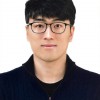2. Instructor Information

|
Name |
Lee Sangmin |
Department |
Dept. of Chemical Eng. |
| Email address |
sminlee@postech.ac.kr
|
Homepage |
https://pdl.postech.ac.kr/ |
| Office |
054-279-2277 |
Office Phone |
054-279-2277 |
| Office Hours |
Contact professors (by email preferably) for an appointment
|
3. Course Objectives
Modern research in life science has proved that a multidisciplinary approach is required to understand complicated biological systems and accelerate applications in human therapeutics, chemicals, and genetically encoded materials.
In this course, the bioengineering faculty team at the CE department will discuss 3-4 core techniques and a wide variety of current research in biotechnology. These include applications in biotechnology such as genome engineering, biomolecule engineering, tissue engineering, regenerative medicine, enzyme engineering, bioprocess, bio-based chemicals, computational biology and protein engineering.
4. Prerequisites & require
Not mandatory, but recommended to take General Biology (일반생물학), General Chemistry (일반화학)
5. Grading
Attendance 20%, Final exam 80% (No Mid-term)
6. Course Materials
| Title |
Author |
Publisher |
Publication
Year/Edition |
ISBN |
|
Latest research/review articles in the field of biotechnology and bioengineering. PowerPoint Slides will be provided before classes.
|
|
|
0000
|
|
7. Course References
Biotechnology for Beginners by Renneberg
Biology by Campbell
Principles of Modern Chemistry by Oxtoby
8. Course Plan
1. Introduction
2. Genome engineering and applications: gene synthesis, gene editing, gene circuit, and devices
3. Genome engineering and applications: PCR and molecular diagnostics (1)
4. Genome engineering and applications: PCR and molecular diagnostics (2)
5. Genome engineering and applications: CRISPR and its applications
6. Tissue engineering: Biomaterials, Scaffold, Fabrication, Tissue regeneration, Regenerative medicine
7. Biopharmaceuticals: Protein therapeutics, Vaccines, Gene therapy, Immune therapy, Cell therapy
8. Drug delivery: Administration route, Delivery carriers, Nanoparticles
9. Biomolecules and cell-free based techniques: peptides, lipids, and hydrocarbons
10. Biomolecules and cell-free based techniques: cell-free protein synthesis and its applications
11. Biomolecules and cell-free based techniques: biochip and DNA sequencing
12. Molecular & Structure biology
13. Computational biology: Theory and simulations
14. Computational biology: AI in bioengineering
15. Computational biology: Protein design and engineering
16. Final exam week
10. How to Teach & Remark
Students (sophomore, 2학년 2학기) who want to build fundamental knowledge in life science are highly recommended to take this lecture.
11. Supports for Students with a Disability
- Taking Course: interpreting services (for hearing impairment), Mobility and preferential seating assistances (for developmental disability), Note taking(for all kinds of disabilities) and etc.
- Taking Exam: Extended exam period (for all kinds of disabilities, if needed), Magnified exam papers (for sight disability), and etc.
- Please contact Center for Students with Disabilities (279-2434) for additional assistance